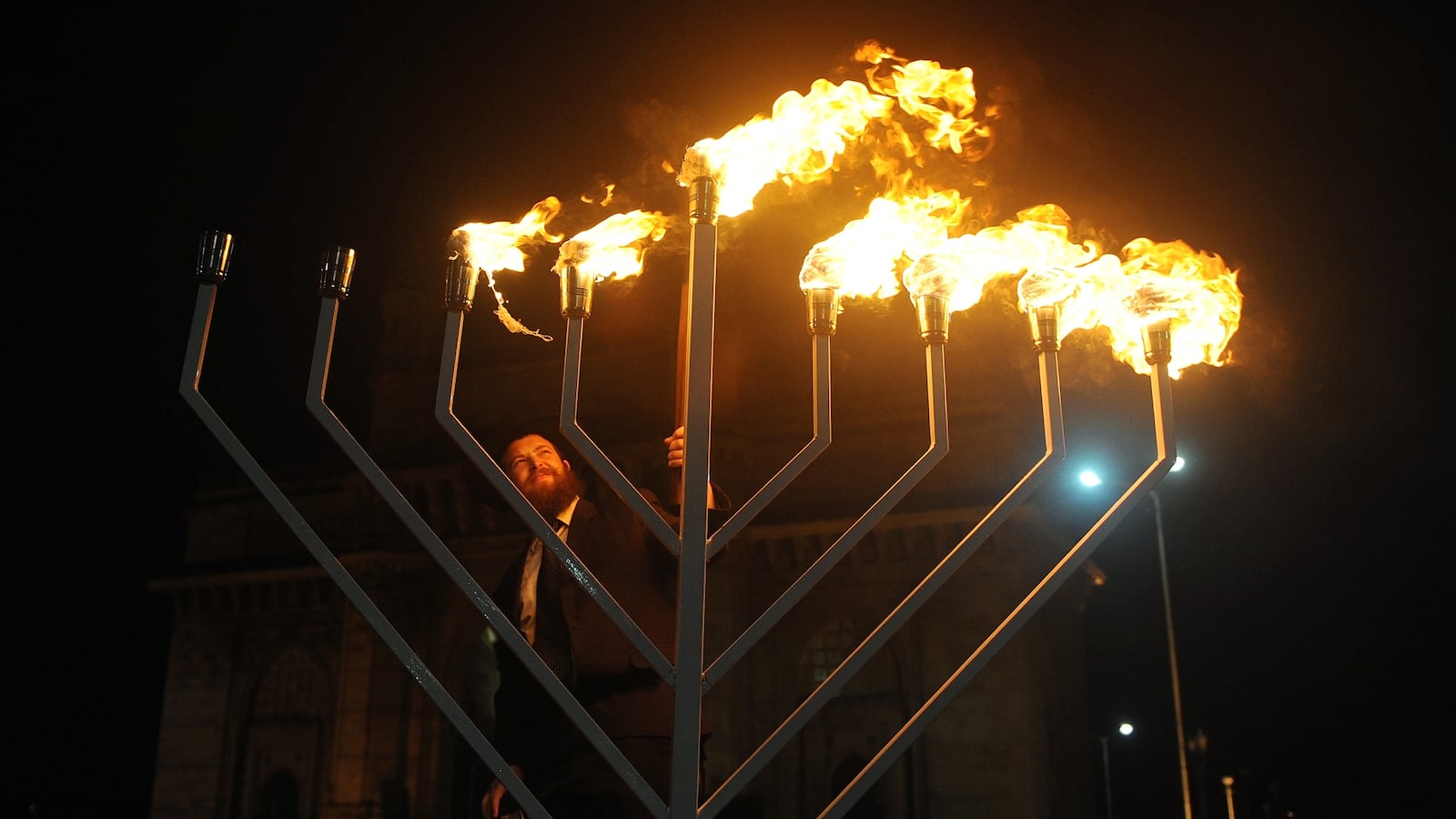
My National Post column tells the real story behind the Jewish festival of lights:
The canonically approved story of Hanukkah is an exceedingly strange one.
The Talmud explains the holiday as a commemoration of the rededication of the Temple after the Maccabean revolt. The triumphant Jews possessed only a one-day supply of consecrated oil. Yet when lighted, the oil miraculously lasted for eight nights. Hence: menorahs, latkes, etc., etc., etc.
Pause to reflect. Jews believe that the God of the Torah created the known universe, not only Earth and our solar system, but the Milky Way and all the millions of galaxies beyond our own. But the miracle to which we devote this long and joyous festival is the miracle of … the discovery of some unusually long-lasting olive oil. It seems somehow piddly, does it not?
But of course, the miracle of the oil is not the reason for the holiday. It’s a revision compiled six centuries after the fact, at a time when the true reasons for the holiday had become too embarrassing to remember. For the Jews of the 21st century, however, the true reasons are much more compelling than the false.
Hanukkah is the Fourth of July of the ancient Jewish commonwealth, the commemoration of an against-long-odds victory in a war of national liberation. The independence established then lasted for nearly two centuries, only to be lost for almost 2,000 years — before at last being re-established again in the modern state of Israel.
You don’t have to believe the petty miracle of the oil to celebrate those great events. So why did anybody ever bother to concoct the oil story in the first place?
For the rabbis of the sixth century of the common era, the actual story of Hanukkah was an embarrassing one for two important reasons.
The family that led the revolt made themselves rulers of the re-established Judaean commonwealth. That family soon fell afoul of the leading religious authorities of their day, the people known to history as the Pharisees. From the point of view of the authors of the Talmud, the Pharisees were the heroes of Jewish history. The Hasmonean monarchs who got themselves disliked by the Pharisees must therefore be villains. Reason 1 to write them out of history.
There was a second reason, perhaps even more compelling. The Jews won their independence on their own, but they maintained that independence with help from the rising superpower of the Mediterranean world: Rome.






